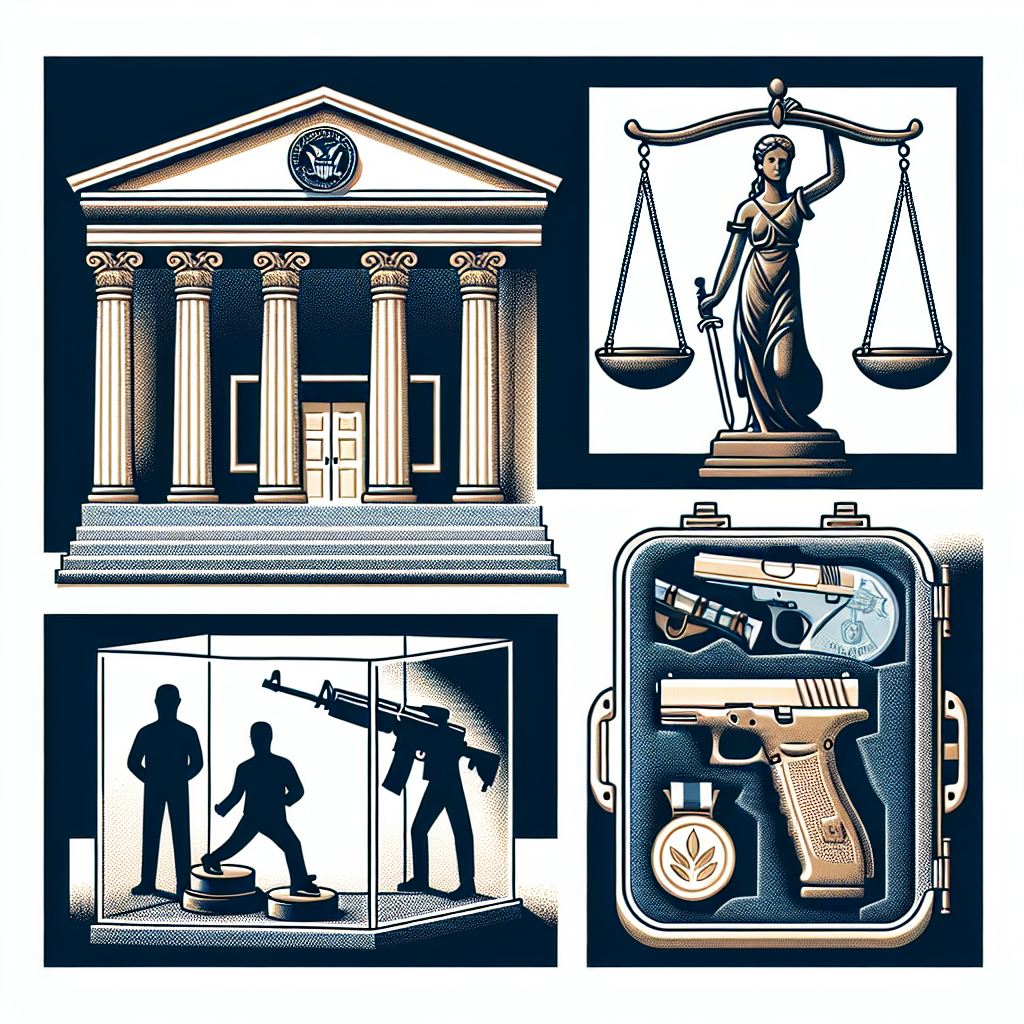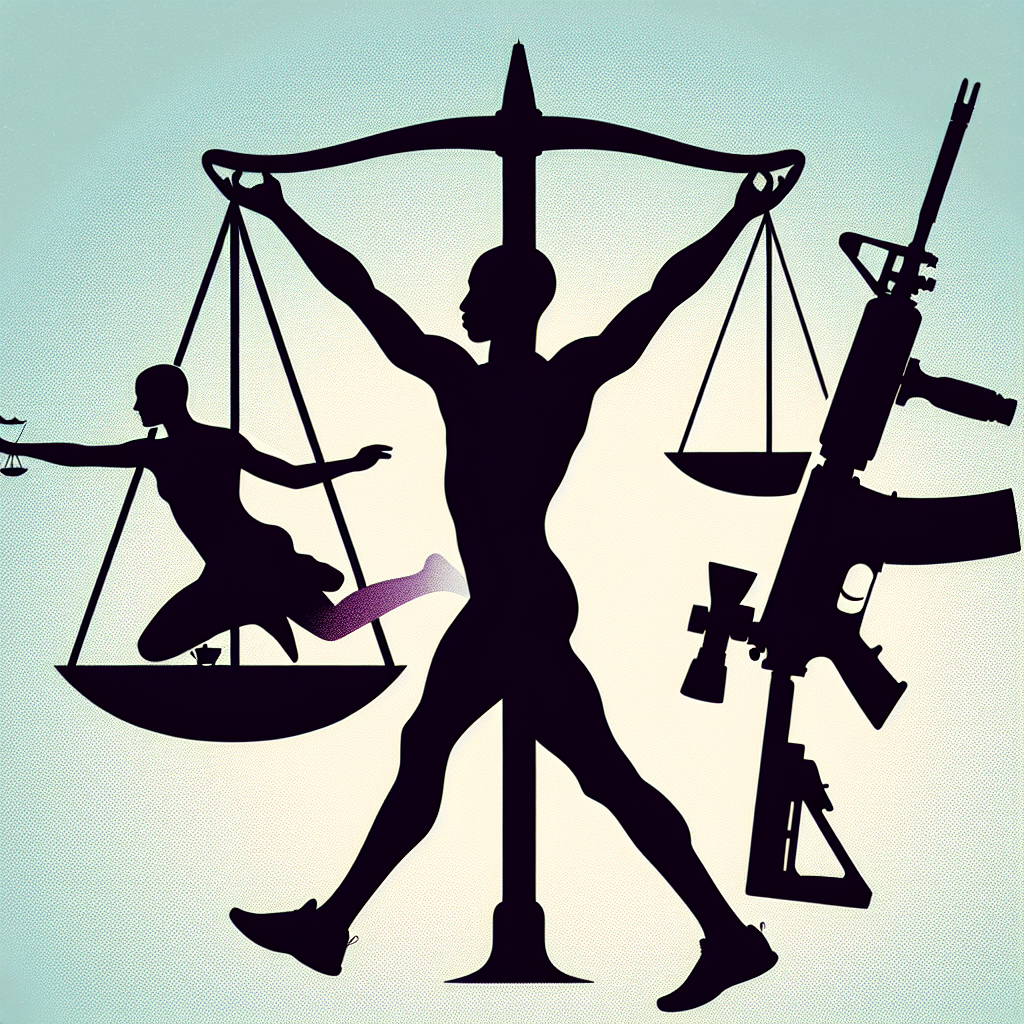The Supreme Court is set to hear a series of significant cases starting January 12, 2026. Among the cases are those concerning transgender athletes, gun rights, and the controversial firing of a Federal Reserve governor by former President Donald Trump. These cases will not only shape legal precedents but also influence public policy and societal norms across the nation.
Transgender Athletes and Sports Participation
On January 13, the Court will hear arguments in Little v. Hecox and West Virginia v. B. P. J., which challenge laws in Idaho and West Virginia that restrict transgender women and girls from competing on women’s sports teams. The Ninth Circuit Court ruled that Idaho’s ban violates the Constitution’s equal protection clause, while the Fourth Circuit found West Virginia’s law in violation of Title IX, which prohibits sex discrimination in federally funded education programs. These cases are pivotal as they address the intersection of sports, gender identity, and equality.
Lindsay Hecox, the athlete involved in the Idaho case, had initially sought to dismiss her case as moot. However, the Supreme Court has delayed a decision on this request until after oral arguments. The outcomes of these cases could set a national precedent regarding the rights of transgender athletes in educational institutions.
Gun Rights and Public Safety
Another crucial case will be heard on January 20, titled Wolford v. Lopez, which questions the constitutionality of a Hawaii law that criminalizes carrying a handgun on private property without permission. This case represents a significant chapter in the ongoing gun rights debate in the United States, where the balance between individual rights and public safety continues to be a contentious issue. The Supreme Court’s ruling will likely have far-reaching implications for gun ownership laws across the country.
The legal arguments surrounding this case will address the Second Amendment and its interpretation in contemporary society. Advocates on both sides of the issue are preparing for a robust legal battle, as the Court’s decision could redefine the limits of gun rights and regulations.
Trump’s Firing of a Federal Reserve Governor
Additionally, the Court will deliberate on President Trump’s decision to remove Lisa Cook from the Federal Reserve’s Board of Governors. This case has sparked discussions regarding the extent of presidential power in appointing and dismissing federal officials. The legal community is closely observing this case, as it touches on the broader implications of executive authority.
Legal experts suggest that the outcome could redefine the boundaries of executive power and the checks and balances that govern federal appointments. The case has already drawn significant attention due to its potential to influence how future administrations handle appointments and dismissals of key government officials.

Conclusion
The Supreme Court’s upcoming session promises to address some of the most pressing legal issues in contemporary American society. With cases involving transgender rights, gun regulations, and executive power on the docket, the implications of these rulings will resonate throughout various aspects of public life. As the nation awaits the Court’s decisions, legal experts and citizens alike are preparing for the potential changes that may arise from these landmark cases.
The Supreme Court is set to engage in significant legal discussions starting in January 2026, with cases that may shape essential areas of American law. Among the issues to be addressed are the rights of transgender athletes, the evolving interpretations of gun rights, and the controversial actions taken by former President Donald Trump concerning members of the Federal Reserve. These cases not only highlight the contentious nature of contemporary legal battles but also reflect broader societal debates surrounding equality, safety, and the limits of executive power.
Transgender Athletes and the Constitution
On January 13, the Supreme Court will hear arguments in two pivotal cases: Little v. Hecox and West Virginia v. B. P. J.. These cases center around laws in Idaho and West Virginia that prohibit transgender women and girls from competing on women’s sports teams. The supreme court cases will explore whether these laws violate constitutional protections, particularly the Equal Protection Clause. In Idaho, the 9th Circuit Court ruled that the state’s ban infringes upon the rights of transgender individuals, citing the Constitution’s guarantee of equal protection under the law.
Similarly, in West Virginia, the 4th Circuit Court found that the law discriminates based on sex, violating Title IX, which prohibits sex discrimination in federally funded educational programs. The implications of these rulings could set significant precedents regarding the treatment of transgender individuals in sports and educational settings. The Supreme Court’s decision will not only impact athletes but could also influence legislation across the nation.
Legal Implications of Trump’s Federal Reserve Actions
Another significant case the Supreme Court will consider involves President Trump’s attempts to remove Lisa Cook from her position on the Federal Reserve Board. This case raises critical questions about the president’s authority to fire federal officials. The trump administration firing of Cook has sparked discussions about the limits of executive power and the independence of federal institutions. The outcome could redefine the relationship between the executive branch and independent agencies, impacting how future administrations interact with federal officials.
As the justices prepare to deliberate on these cases, the legal community and the public alike are keenly interested in the potential ramifications. The court’s decisions will likely influence not only current policies but also set the stage for future legal interpretations. These cases exemplify the ongoing struggle between individual rights and governmental authority, a theme that resonates throughout American jurisprudence.

Gun Rights and Constitutional Interpretation
On January 20, the Supreme Court will also hear Wolford v. Lopez, a case that questions the constitutionality of a Hawaii law prohibiting the carrying of handguns on private property without permission. This case is part of a larger trend in the Supreme Court’s recent gun rights jurisprudence, which has seen an uptick in cases challenging state regulations on firearms. The court’s decision in this matter will likely influence how states can regulate gun ownership and carry laws.
The legal landscape surrounding gun rights has been contentious, with advocates on both sides of the issue fiercely debating the implications of the Second Amendment. The Supreme Court’s ruling could either reinforce or challenge existing state laws, potentially reshaping the framework for gun rights across the nation. As these cases unfold, they will not only test the boundaries of constitutional law but also reflect the evolving societal attitudes towards these pressing issues.
Conclusion and Future Considerations
The upcoming Supreme Court sessions promise to address some of the most pressing legal issues of our time, from the rights of transgender athletes to the extent of presidential authority and the interpretation of gun rights. As these cases move forward, the legal community and the public will be watching closely, aware that the outcomes may have lasting implications for American law and society. The intersection of these critical issues underscores the importance of the judiciary in shaping policies that affect the lives of millions.
The Supreme Court’s upcoming session in January 2026 promises to address significant legal questions that could shape the landscape of civil rights and governance in the United States. Among the critical cases set for oral arguments are those concerning the participation of transgender athletes in school sports, the interpretation of gun rights, and the controversial dismissal of a Federal Reserve governor by former President Donald Trump. Each of these cases reflects broader societal debates and legal interpretations, making this session particularly noteworthy.
Transgender Athletes and Equal Protection
On January 13, the Supreme Court will hear arguments in Little v. Hecox and West Virginia v. B. P. J., which challenge laws in Idaho and West Virginia that restrict transgender women and girls from competing on women’s sports teams. The Ninth Circuit Court previously ruled against Idaho’s law, asserting that it violates the Constitution’s equal protection clause. Similarly, the Fourth Circuit found that West Virginia’s law breaches Title IX, which protects against sex discrimination in federally funded educational programs. These rulings highlight the ongoing legal battles surrounding transgender rights and the interpretation of equality under the law.
Lindsay Hecox, the plaintiff in the Idaho case, has sought to dismiss her case as moot after voluntarily withdrawing from competition. However, the Supreme Court has opted to postpone a decision on this request until after oral arguments. The outcome of these cases could set a precedent for how states regulate participation in sports and may influence future legislation regarding transgender rights across the nation.

Gun Rights and State Regulations
Another pivotal case, Wolford v. Lopez, scheduled for January 20, will examine the constitutionality of a Hawaii law that criminalizes carrying a handgun on private property without permission. This case enters a complex dialogue around the Second Amendment and the extent to which states can impose regulations on gun ownership and use. The Supreme Court has previously been reluctant to definitively clarify the scope of gun rights, making this case a critical opportunity to address the balance between public safety and individual rights.
The ruling in this case could have widespread implications, potentially influencing how states craft their gun laws in relation to the Second Amendment. As gun violence continues to be a pressing issue in America, the Court’s decision may reflect a broader societal inclination towards either stricter regulations or expanded gun rights.
Trump’s Federal Reserve Controversy
The Supreme Court will also consider the case involving President Trump’s attempt to remove Lisa Cook from her position on the Federal Reserve Board. This case raises essential questions about the limits of executive power and the independence of federal agencies. The implications of this case could redefine the relationship between the executive branch and regulatory bodies, particularly in areas concerning economic policy and governance.
As the Court prepares to hear arguments, legal experts and political analysts will be closely watching the proceedings. The outcomes of these cases not only hold immediate consequences but also set the tone for future legal interpretations regarding civil rights, public safety, and the functioning of government institutions. The decisions made in January could resonate through the legal landscape for years to come and influence ongoing debates surrounding these critical issues.
For further reading on related topics, you may explore this transgender rights case that has significant implications for the ongoing discussions about equality and civil rights in America.